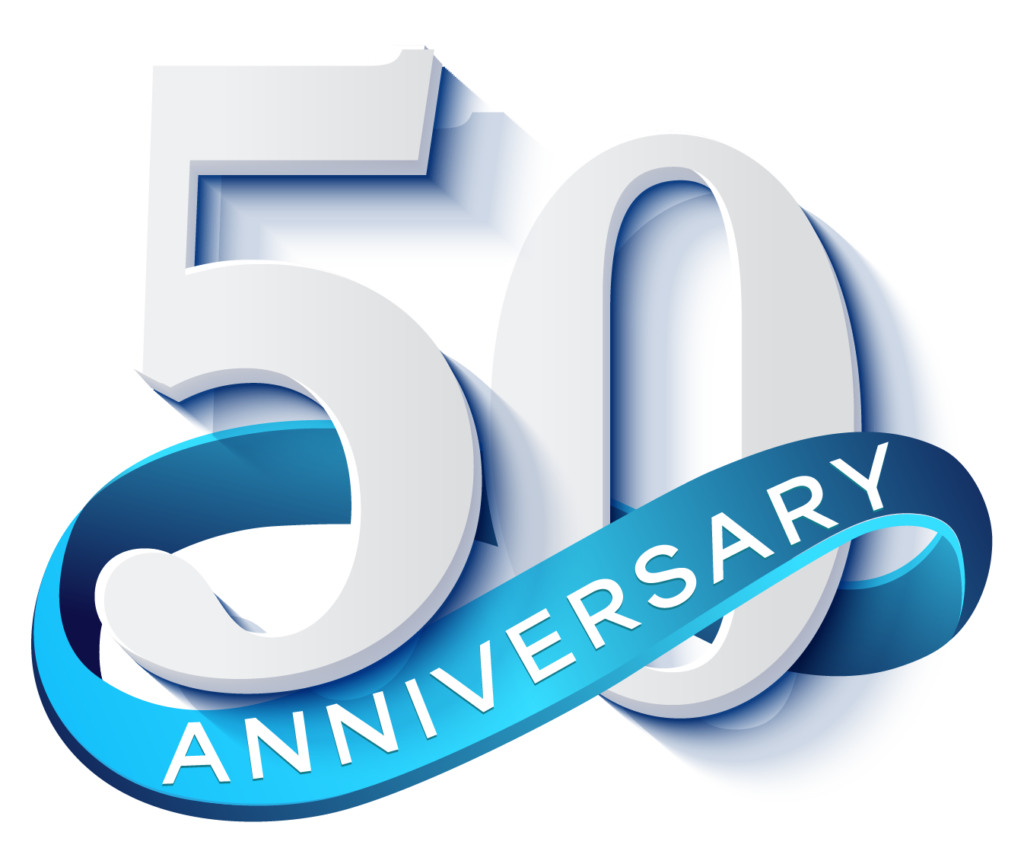Onboarding is a critical phase that shapes an employee’s journey, fostering their sense of belonging and equipping them for success. While tools like the science-based Personalysis personality assessment are not specifically tailored for onboarding, they offer invaluable insights into an individual’s working style, communication preferences, and motivators. These are key ingredients for thriving in any role.
Personality assessment tests for onboarding purposes probe patterns of thought, behavior, and emotion, revealing traits that drive workplace dynamics. In this article, we’ll explore how leveraging these insights during onboarding helps managers tailor their approach, ensuring smoother integration, stronger connections, and a more supportive environment. This ultimately sets both employees and teams up for long-term success.
Unlock The Full Potential Of Your Workforce Today With Personalysis!
Understanding Personality Assessment Tests
Personality assessments are tools used to understand individual traits, preferences, and tendencies, often in the context of work, education, or personal growth. A study by the Society for Human Resource Management (SHRM) reveals that 32% of U.S. companies incorporate personality assessments when selecting candidates for employment. These studies come in various forms, each designed to capture different aspects of who we are and how we operate.
The Different Types
These tools can illuminate the unique qualities that make us tick, from evaluating emotional intelligence to predicting decision-making styles based on the candidate’s personality.
- Psychometric Tests: Psychometric tests are like a snapshot of an individual’s psychological makeup and personality type. These standardized tools are designed to measure specific psychological traits such as extroversion, agreeableness, and emotional stability. The beauty of psychometric tests lies in their ability to quantify abstract characteristics, making them highly effective for predicting how someone may behave in different situations.
- Behavioral Assessments: Behavioral assessments focus on how individuals act in real-world situations, making them especially useful for predicting future job performance in specific work scenarios. These assessments observe actions in context. Like how someone handles teamwork, deals with conflict, or approaches problem-solving tasks. Rather than simply assessing personality traits, behavioral assessments reveal patterns in behavior that reflect how someone is likely to perform on the job.
- Cognitive Ability Tests: Cognitive ability tests evaluate an individual’s reasoning, memory, and problem-solving capabilities. These assessments measure how effectively someone processes information, which can give valuable insight into their ability to learn, adapt, and make decisions. For example, cognitive tests often look at a person’s ability to solve puzzles, analyze data, or remember key details under pressure. These personality tests are particularly useful in roles that require critical thinking, quick decision-making, and the ability to absorb and process new information.
How Personality Tests Differ from Other Assessments
Unlike cognitive or skill-based personality tests that measure aptitude, personality assessments like Personalysis focus on how people work and why they behave the way they do. This deeper understanding of motivation and interaction styles can be transformative when applied to team dynamics, communication strategies, and leadership development.
Key Principles Behind Personality Assessments
The principles underpinning tools like Personalysis are grounded in behavioral science and measuring personal characteristics, aiming to:
- Highlight Individual Strengths and Potential Areas of Friction: Everyone brings something unique to the table, but sometimes those strengths can clash in certain settings. Personality assessments help identify what each individual excels at while pinpointing areas that might cause friction. This knowledge paves the way for smarter collaboration and conflict-resolution strategies.
- Foster Self-Awareness, Leading to Personal and Professional Growth: Self-awareness is the cornerstone of growth. By revealing personal preferences, tendencies, and blind spots, these tools empower individuals to make informed choices about how they approach challenges, relationships, and career development.
- Enable Organizations to Align Talent with Strategic Objectives: When you understand what drives and motivates your team, aligning their talents with your organization’s goals becomes far more intuitive. Personality assessments provide a roadmap for placing the right people in the right roles, ensuring everyone contributes to a cohesive and successful strategy. Highlight individual strengths and potential areas of friction.
Benefits of Using Personality Assessment Tests in Onboarding
While onboarding isn’t their primary focus, incorporating personality assessments like Personalysis into workplace strategy offers numerous benefits.
Enhancing Employee Fit and Satisfaction
Onboarding is the perfect time to get to know your new hires, and personality assessments provide a deeper understanding of what makes them tick. By uncovering their intrinsic motivators, whether they’re driven by teamwork, autonomy, structure, or creativity, managers can assign tasks, projects, and goals that align with these natural preferences. This leads to a win-win scenario: employees feel engaged and purposeful because they’re doing work that resonates with them, and the organization benefits from higher productivity and job satisfaction.
The more aligned employees are with their roles, the more likely they are to stay motivated and contribute their best work.
Reducing Turnover Rates
One of the biggest challenges in today’s workforce is employee turnover. A 2023-2024 US survey has this number at 13.5%, down from 24.7% across various industries. It is here that personality assessments can play a key role in addressing this issue. When employees feel understood and valued not just as workers but as individuals, they are more likely to stay. By using personality assessments during onboarding, organizations can tailor communication, feedback, and support to the specific needs of each person.
For example, if a new hire prefers clear, structured guidance, providing that in their first few months can help them feel supported and confident in their role. This approach helps build a culture of appreciation, loyalty, and belonging, which in turn reduces turnover and the cost of constantly hiring and training new talent.
Improving Team Dynamics
One of the most common challenges in organizations is how teams collaborate or struggle to collaborate. By using personality assessments like Personalysis, teams can gain valuable insights into each member’s working style, preferences, and communication tendencies. For example, some employees may thrive in collaborative environments, while others perform best when given independent tasks. Understanding these differences can prevent misunderstandings and conflict, fostering smoother collaboration.
When team members appreciate each other’s strengths and working preferences, they can better navigate potential challenges and play to each other’s strengths, leading to more effective and harmonious teamwork.
Identifying Training and Development Needs
A personality assessment also provides a roadmap for where additional training or development may be needed. For instance, if an employee’s assessment indicates a preference for taking charge and leading projects, but they lack experience in managing people, that’s a signal for targeted leadership development.
Identifying these areas early on allows organizations to design personalized development programs that support employees in building the skills they need to grow. This not only empowers individuals but also strengthens the organization as a whole by creating a more well-rounded and capable team.
Science-based Assessment Tests: Personalysis
Personalysis distinguishes itself as a leading personality assessment tool, offering a blend of scientific accuracy and practical insights. Rooted in years of research, it delves into an individual’s core motivations, adaptability in various situations, and responses to stress. These insights are crucial in cultivating a workplace culture built on collaboration and mutual respect.
The History of Personalysis
Through his extensive research, Noland (while teaching at the University of Houston), created the Personalysis® Questionnaire. This is a personality assessment tool validated by science. This innovative assessment provides a comprehensive view of your unique strengths and illustrates how they shift depending on the situation. Want more information about the science behind Personalysis?
Unlock The Full Potential Of Your Workforce Today With Personalysis!
Choosing the Right Personality Assessment for Your Organization
Selecting a personality assessment tool involves thoughtful consideration of your organization’s needs and values. When done right, selecting and integrating the right assessment tool can transform workplace dynamics, making it a worthwhile investment in your team’s success.
Criteria for Selecting an Assessment Tool
Choosing the right personality test or assessment tool is like finding the perfect pair of shoes. It needs to fit well and serve a purpose. Here are some key criteria to keep in mind:
- Relevance: First and foremost, does the tool align with your organizational goals and team structures? A good assessment should address the specific needs of your workplace, whether it’s improving communication, enhancing leadership, or fostering collaboration.
- Scientific Basis: A reliable tool stands on the shoulders of robust research. Look for assessments that are backed by peer-reviewed studies and validated methods to ensure you’re investing in something credible and effective.
- Usability: Fancy insights are useless if they’re hard to interpret. The best tools are straightforward and practical, offering actionable insights that employees and managers can easily understand and apply.
Integrating Assessments with Organizational Goals
A personality assessment is only as valuable as the actions it inspires. To maximize the impact of a personality test, it’s essential to tie the insights to broader organizational initiatives. Think of the results as a blueprint for meaningful change.
For example, if the assessment identifies certain employees as strong collaborators while others excel independently, use that knowledge to fine-tune team assignments.
Similarly, insights into individual communication styles can inform leadership training programs or guide performance coaching. By embedding assessment findings into the fabric of your workplace strategy, you not only amplify their value but also ensure long-term benefits.
Evaluating the Accuracy and Reliability of Tests
Before committing to a tool for personality testing, do your homework. Not all assessments are created equal, and investing in an unproven option can lead to wasted time and resources. Rely on peer-reviewed studies, user testimonials, and case studies to assess the tool’s effectiveness. Tools like Personalysis, for instance, are trusted for their depth, precision, and actionable insights, making them a safe bet for organizations serious about understanding their people.
Remember, a reliable assessment provides a foundation for informed decision-making. Whether you’re using it to identify training needs, foster team cohesion, or guide individual development, the accuracy of the tool directly impacts the success of your efforts.
Best Practices for Using Personality Assessments
Personality assessments can be game-changers for workplace dynamics, but like any tool, they’re most effective when used thoughtfully. Keep these best practices in mind to maximize their impact.
Ensuring Fairness and Objectivity
Personality assessments are meant to be unbiased tools for understanding strengths, preferences, and potential growth areas. Not a basis for judgment or favoritism. This means focusing on the data and insights they provide without layering on personal biases or assumptions. For instance, if an assessment shows an employee prefers structured environments, it’s not a limitation; it’s a guide for setting them up for success.
Being objective ensures that every employee feels valued and that decisions stemming from the assessments are seen as equitable and transparent.
Avoiding Common Pitfalls and Misinterpretations
A common misstep with personality assessments and the typical workplace personality tests is oversimplifying the results or pigeonholing individuals into narrow categories. For example, seeing someone as “just a thinker” or “only a doer” overlooks the complexity and multifaceted nature of people. These oversights can diminish the effectiveness of the tool and even create resistance among employees.
Thankfully, robust tools and employment personality tests like Personalysis provide comprehensive and nuanced insights, ensuring a well-rounded understanding of each personality trait. By taking the time to fully digest and discuss the results, organizations can avoid overgeneralizations and instead focus on creating actionable, balanced strategies.
Maintaining Confidentiality and Ethical Considerations
Trust is the foundation of a successful personality assessment initiative. Employees need to know that their personal information will be handled with care. This means safeguarding assessment data, sharing results only with those who need to know, and being upfront about how the information will be used.
For example, the assessment should clearly communicate that it is intended for personal and team development. These are not for promotions or layoffs, as they help foster openness and buy-in from participants. Ethical handling of these assessments builds confidence in the process and reinforces an organization’s commitment to its people.
Integrating Results into Meaningful Action
Finally, personality assessments should never be a “check-the-box” activity during the hiring process. To maximize their value, integrate personality tests insight into ongoing practices like one-on-one coaching, team-building sessions, and leadership development programs. For instance, if an assessment highlights that certain team members thrive in collaborative settings while others excel in solo projects, use that knowledge to balance assignments effectively.
By turning insights into action, organizations ensure that the assessments drive tangible improvements in workplace dynamics and individual satisfaction.
Verdict: How Personality Assessment Makes Onboarding Easier?
Personality assessments like Personalysis offer a wealth of valuable insights into employees’ motivations, working styles, and team dynamics. While they may not be the primary focus of the onboarding process, these tools can still play a significant role in shaping long-term talent development and driving organizational success.
Embracing personality assessments like Personalysis can also foster a company culture of collaboration and alignment with your organization’s strategic goals. When employees and test takers feel that their unique strengths and preferences are recognized and valued, they are more likely to be engaged and committed to the company’s mission. This employment personality test results in a more motivated and aligned workforce, helping your organization achieve its objectives with greater efficiency and success.
Unlock The Full Potential Of Your Workforce Today With Personalysis!




